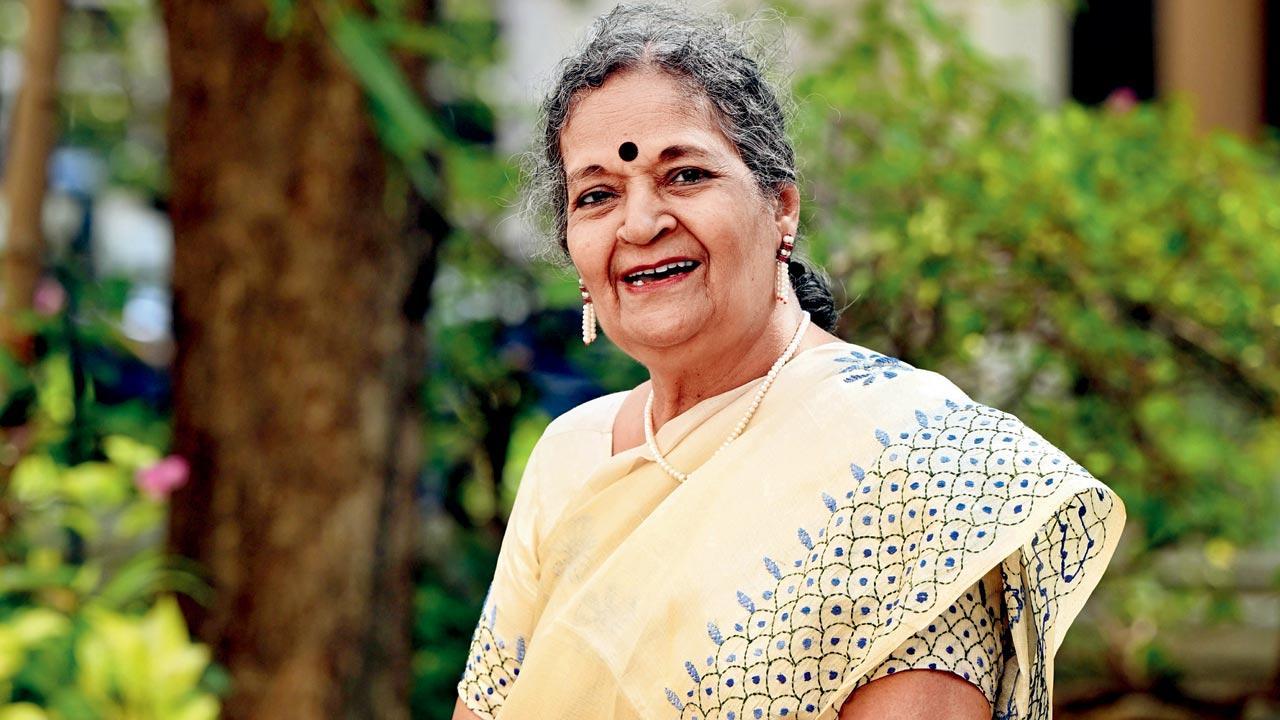Solo face of courage
Updated On: 09 June, 2024 07:07 AM IST | Mumbai | Sumedha Raikar Mhatre
What does it mean to be single, female and Indian? A new Hindi anthology challenges the urban, upper class idea of independence

Divya Jain, 74, is an award-winning writer and editor of the erstwhile Hindi magazine Antarang Sangini, and is behind the anthology titled, Khudi Ko Kar Buland: Ekal Streeyon ka Zindaginama (RK Publication). Pic/Satej Shinde
![]() India is said to be home to approximately 100 million single women; a significant demographic with influence on multiple aspects of society. The singlehood of women has a connection with contemporary family structures, inheritance laws, social security, moral codes, law and order, gender bias, income patterns, and career prospects.
India is said to be home to approximately 100 million single women; a significant demographic with influence on multiple aspects of society. The singlehood of women has a connection with contemporary family structures, inheritance laws, social security, moral codes, law and order, gender bias, income patterns, and career prospects.
Single women are being increasingly acknowledged as a social-economic force not just by ‘Ekal’ women’s organisations nationwide, but also by public policy experts. And yet, social scientists point to the scheme benefits that are beyond the grasp of households held together by single women.



